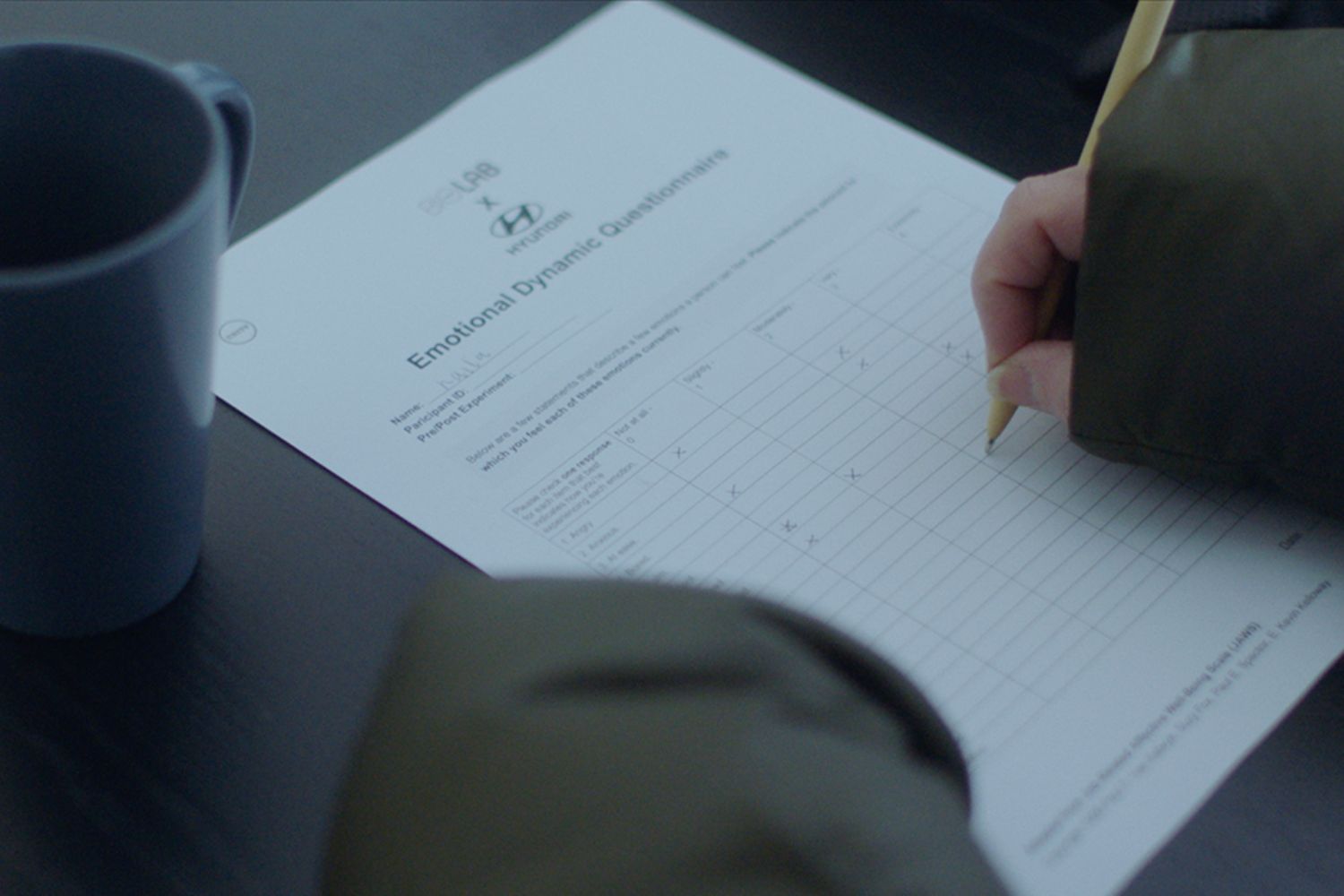A combination of a winter that never seems to end (have you tried going outside this week without a jumper?) and roads that seem to be more clogged-up and restricted than ever might give you a double-dose of the winter blues. However, Hyundai reckons that, even in this carbon-sensitive, speed-restricted modern era, going for a drive can actually, verifiably, help lift your spirits in these long, cold months.
Driving sparks joy

“It is often said that driving sparks joy. However, when considering the dark winter conditions that affect some areas in Europe, this sentiment takes on a deeper significance. The question arises: Can driving really have a positive effect against the winter blues?” asked Hyundai in a rhetorical question.
To really test this theory, the Hyundai team decamped to Rukan, Norway, one of the coldest spots on the planet. It is far north enough that the winters last for six months at a stretch (they should have tried Limerick, etc.…).
To give themselves the best possible advantage, Hyundai brought along some examples of its rather brilliant new Ioniq 5 N high-performance electric car and asked a group of 20 people who struggle with seasonal affective disorder to have the opportunity to take Ioniq 5 N for a spin.
The Ioniq 5 N seems tailor-made to raise a smile or two. It boasts a maximum power output of 650hp and a torque of 770Nm, can accelerate from 0 to 100km/h in just 3.4 seconds, and can reach a top speed of 260km/h. It is enhanced with electronic driver aids like N Grin Boost, N Drift Optimiser, and N Launch Control.
The ‘DOJO’ effect

To make this a properly scientific experiment, Hyundai brought in neuroscientist Shani Tal to measure ‘Depth of Joy’, or ‘DOJO’ - a new way of exploring the emotional impact of driving Ioniq 5 N.
The experiment was set up to delve deep into the participants’ psyche, focussing on a range of biometric measurements to gauge DOJO. Through the lens of neuroscience, Tal and her team applied the Arousal-Valence Matrix to map the emotions of the participants. The model uses two dimensions of affective responses, valence - which determines whether the experience is perceived positively or negatively - and arousal - the intensity of the experience.
Using an EEG (electroencephalogram) cap and a brain-computer interface (BCI) to show electrical activity in the brain, the experimenting team focused on metrics such as alpha power and front alpha asymmetry (representing valence) while a biometric skin sensor recorded electrodermal activity (EDA) and heart rate variability (HRV), which accounts for—ahem—arousal.
Biometric sensors

According to Hyundai: “The experimental design encompassed three crucial phases: baseline measurements taken before the test drives, measures during the test drives, and post-test-drive assessments about long-term effects - each punctuated by questionnaires and detailed biometric recordings. As participants embarked on their test drives, the anticipation was visible, with each moment captured by video recordings and biometric sensors. With a hypothesis grounded in the expectation of heightening DOJO during the test drives, Tal’s team anticipated a representation of DOJO that encapsulated both valence and arousal dimensions of affective responses. The results were hypothesised to reveal a surge in DOJO during driving, followed by a sustained elevation post-experiment.”
So it works? Yes, according to Hyundai’s analysis of the experiment. 75 per cent of the people who took the Ioniq 5 N out for a spin in the depths of winter “experienced a notable positive emotional response after their test drives.” On average, said Hyundai, participants showed a remarkable 28 per cent increase in the exploratory DOJO metric compared to baseline with a positive reaction range of up to 67 per cent after the test drive, hinting that IONIQ 5 N can evoke positive emotional responses across a diverse spectrum of participants.
In terms of personal responses, 87.5 per cent of participants reported feeling more positive after driving Ioniq 5 N compared to baseline, which correlates rather nicely with the observed scientific data.
Goosebumps

EDA - electrodermal activity, literally goosebumps - was the most commonly observed effect, while a change in the brain’s symmetrical function was the next most significant.
In a post-experiment statement, Hyundai said: “While bioanalysis in the context of driving is not entirely novel, the experiment’s unique focus on winter weather and its impact on participants suffering from depressive symptoms is groundbreaking. This makes the endeavour a pioneering exploration into the emotional dynamics of everyday individuals navigating icy roads and dark conditions. Beyond the automotive context, the experiment stirs up profound questions on the intersection of human emotion, technology, and environmental factors. It opens the door to further research into the broader implications of biometric analysis in understanding and enhancing human experiences in diverse contexts.”
So, does this mean we can all have a Hyundai Ioniq 5 N for the winter on the HSE? Please?










